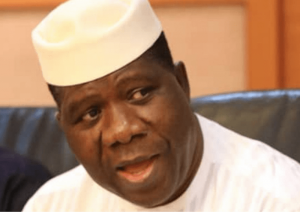Longtime AP basketball writer Jim O’Connell to be honored


MINNEAPOLIS (AP) — The late Jim O’Connell, the long-time Associated Press college basketball writer, will have an award named for him and be honored as its first recipient by the U.S. Basketball Writers Association.
O’Connell, a former president of the USBWA and member of its Hall of Fame, died in July. He will be honored at the annual awards luncheon April 8 at the Final Four in Minneapolis. His wife, Anne, sons James and Andrew, and sisters Winnie and Mary are expected to accept the award, which will be named the Jim O’Connell Award for Excellence in Beat Reporting.
Known throughout basketball as OC, O’Connell covered 39 consecutive Final Fours for the AP and served as its national college basketball writer since 1987. He received the Curt Gowdy Print Media Award for outstanding lifetime coverage of basketball from the Naismith Memorial Basketball Hall of Fame in 2002.
“The question wasn’t whether to honor OC,” said USBWA president and Newport News Daily Press columnist David Teel. “It was how to honor OC, and a beat-reporting award that carries his name is perfect. No one embodied the love of the game and often-unseen hours of the grind like OC, and we hope this award will inspire dedicated beat reporters just as OC inspired us.”
The award will become an annual tribute to the daily work of reporters who meet the highest standards of beat reporting while exceeding the USBWA Code of Ethics, the organization said Wednesday.
O’Connell’s AP career spanned the championship game between Magic Johnson of Michigan State and Larry Bird of Indiana State; the creation of the Big East Conference; the growth of the NCAA Tournament to 68 teams; and the capacity of Final Four venues to 70,000 and beyond. He also attended every Big East Tournament from 1980-2017 and covered 20 Maui Invitationals.
He worked the Olympic Games from 1984 in Los Angeles through 2004 in Athens, and according to FIBA, held the unofficial distinction of covering more Olympic basketball games than any reporter.
But friends, colleagues, athletes, coaches and administrators understood for years that O’Connell was at least as comfortable while sitting in tiny gymnasiums, watching overlooked teams compete in one-bid leagues, always in search of that next story.
“He was the source on college basketball,” former AP sports editor Terry Taylor said in the AP obituary last July. “He knew coaches, players, games, dates of games and final scores — all manner of factoids — off the top of his head. And when you looked it up, he was always right.”






